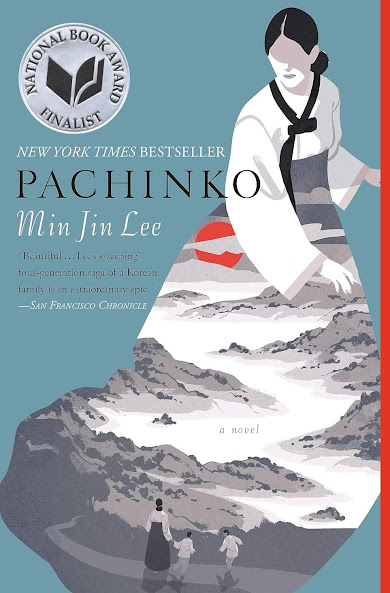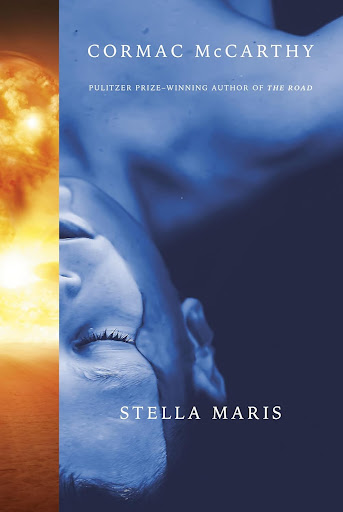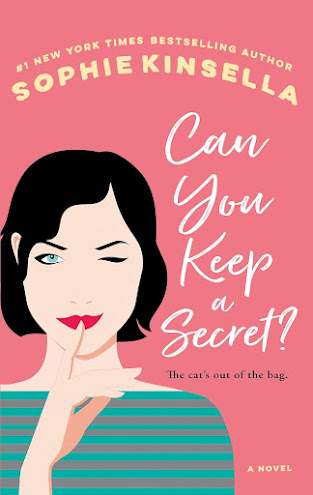Historical Fiction Annotation: Pachinko
Title: Pachinko
Genre: Historical Fiction, Literary Fiction
Genre: Historical Fiction, Literary Fiction
Publication Date: February 7, 2017
Number of Pages: 490
Geographical Setting: Korea, Japan
Time Period: 1910-1989
Plot Summary: The novel covers four generations of one Korean family, following an ensemble of characters while most closely sticking to the story of Sunja. Sunja is born to a loving, physically disabled father (who dies when she is thirteen) and a poor but highly resourceful mother who runs a small boarding house in a Korean fishing town. For all of Sunja's childhood, Korea has been colonized by Japan, and as a Korean, she experiences discrimination and prejudice from a young age.
One day, an older Japanese man rescues Sunja from a group of Japanese boys who are harassing her, and she and this man develop a secret relationship. Shortly after she becomes pregnant with his son, he reveals to her that he has a wife and children in Japan. Shocked and hurt, Sunja refuses to see him again, though he insists that he wants to take care of her financially for the rest of her life. Around the same time, a Korean Christian minister arrives at Sunja's mother's boarding house, and after learning about Sunja's situation, he offers to marry her, saving her from disgrace and providing her with the opportunity for a good future.
I can't say much more than this, but the novel goes on to explore the tragedies, successes, and secrets of her family as Sunja has two children, immigrates to Japan, survives the hardships of WWII and the Korean War, becomes a grandmother, and navigates the complexities of family and identity.
I absolutely loved this book, though I would say that the pacing may be a bit slow, and the story a bit meandering, for others' tastes.
Subject Headings:
- Historical Fiction
- Literary Fiction
- Family Saga
- Korea
- Japan
Appeal:
- Storyline: Character-driven
- Pace: Leisurely-paced
- Writing style: Richly-detailed
3 terms that best describe this book:
- Immersive
- Sweeping
- Emotional
Relevant Fiction Works and Authors:
- The Island of Sea Women by Lisa See
- Like Pachinko, this book gives the reader a view into the lives of Koreans during the time of Japanese colonialism (and the following decades), centering on the story of two members of an all-female diving collective.
- Kim Jiyoung, Born 1982 by Cho Nam-Joo
- Interestingly, this story begins in the time period that Pachinko ends. Kim Jiyoung, Born 1982 covers a significant portion of the titular character's life. Though it is not as grand in scope as Pachinko, it seems to place more specific emphasis on the unique experiences and struggles of Korean women.
- The Nine Cloud Dream by Kim Man-Jung
- A classic of Korean literature from the 17th century (and the first Korean work to be translated into English), this book would be great for anyone interested in the philosophical and religious forces that have shaped modern Korean culture.
Relevant Non-Fiction Works and Authors:
- Assimilating Seoul: Japanese Rule and the Politics of Public Space in Colonial Korea, 1910-1945 by Todd A. Henry
- This is a well-reviewed, in-depth history of exactly what the title describes. It would provide a wealth of knowledge about the historical context underlying the story of Pachinko.
- Korea: A New History of South & North by Victor Cha & Ramon Pacheco Pardo
- Published just last year, this book examines the history of Korea beginning in the late 19th century, with an apparent focus on the evolution and drastically different politics/cultures of North and South Korea.



Hi Dallin! I have seen this book pop up in my recommended reads often on Goodreads but never really looked into it. However, after reading your annotation, I may need to check it out! I love books that are set in WWII era but never really thought about how it impacted Koreans. I will have to try it out!
ReplyDeleteI absolutely recommend it! I will say that the WWII element is actually pretty minor, since the book is so focused on the characters' domestic lives. But it's definitely still an important part of the context.
DeleteI keep seeing this one everywhere! Your descriptive summary and appeals really has me wanting to pick it up now. Great job!
ReplyDelete